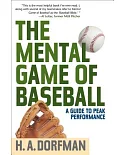'Sports participation by adolescents is considered a rite of passage in Western society. Adolescents participate in sports for many reasons. Most play sports for fun. Other reasons include,
personal motivation, enhance fitness, socialization, economic benefits, status symbol, parental or societal pressures, and media influence. Approximately 40 million children and adolescents
participate in organized sports in the United States alone and many more worldwide. Many start at a very young age, as young as three years and specialize in a single sport with intensive
participation, spending many hours in practices, games, and travel. In some cases this level of commitment to sports, whether a personal choice or because of societal or parental pressure, can
lead to social isolation, burnout, and adverse impact on normal psychosocial development. Sport participation experience can be positive or negative depending up on the motivation, goals, and
expectations of the adolescent, his or her parents or other adultsin life, and the society at large. Many adolescents quit or are left out of participating in sports. The potential benefits of
sport participation by adolescents include improve self-esteem, enhanced personal coping abilities, enhanced social competence,and fostering teamwork and healthy competitiveness. In addition to
many psychosocial and developmental benefits of healthy sports participation, it can have life-long positive impact in prevention and control of major diseases that have enormous personaland
public health implications. In this book the editors have explored selected topics to exemplify some of the many facets of sport participation by adolescents that have implications for
individual and public health.'--Publisher's description.





















